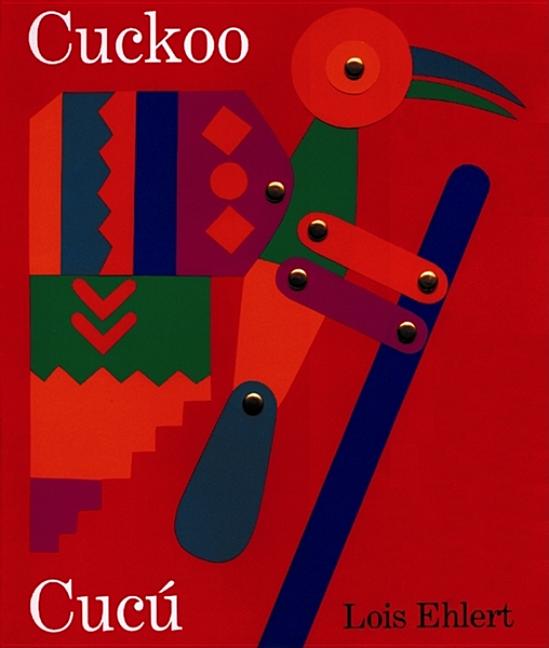Book Description
for Cuckoo by Lois Ehlert and Gloria De Aragon Andujar
From Cooperative Children's Book Center (CCBC)
Even though Cuckoo was admired for her lovely voice and bright feathers, a little goes a long way when one is also vain and lazy. "Even the sweetest song can turn sour = Pero aun la canción más dulce se puede amargar." One day while the other birds were asleep, Cuckoo noticed flames threatening to destroy a season's supply of seeds. Flying with one seed at a time in her beak, Cuckoo carried seeds "from the fiery fields to the cool woods" and dropped them into Mole's tunnel. The next day a raspy cry, "Cuckoo," was the only sound Cuckoo could muster, and her feathers were scorched black. All of the creatures agreed, "You can't tell much about a bird by looking at its feathers = Todos estaban de acuerdo al final que no se puede juzgar a un pájaro por su plumaje." The type-face for both languages is large, and the brief text is easy to read. Ehlert's stunning Pre-Columbian palette has a strikingly contemporary appearance. In short notes written at the end of the tale for interested older readers Ehlert writes that Athe illustrations were inspired by a variety of Mexican crafts and folk art, including cut-paper fiesta banners, tin work, textiles, metal milagros, clay 'tree of life' candelabra, and wooden toys and sculptures." Her mixed media assemblages were photographed skillfully, given the illusion of three dimensions. Young readers met Mole's Peruvian "cousin" in Moon Rope (Harcourt, 1992) and his Woodland Indian "cousin" in Mole's Hill (Harcourt, 1994). (Ages 3-9)
CCBC Choices 1997. © Cooperative Children's Book Center, Univ. of Wisconsin - Madison, 1997. Used with permission.


